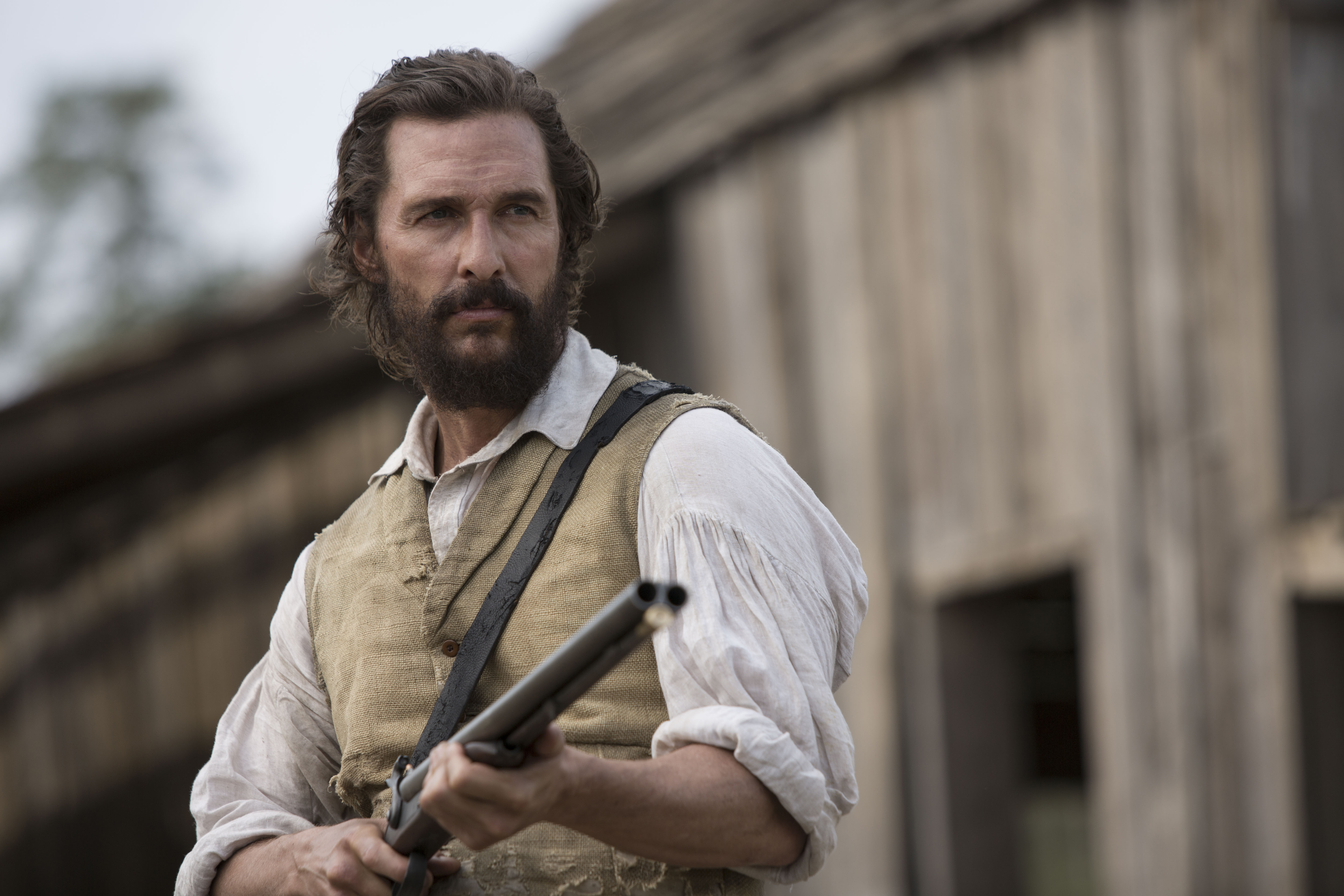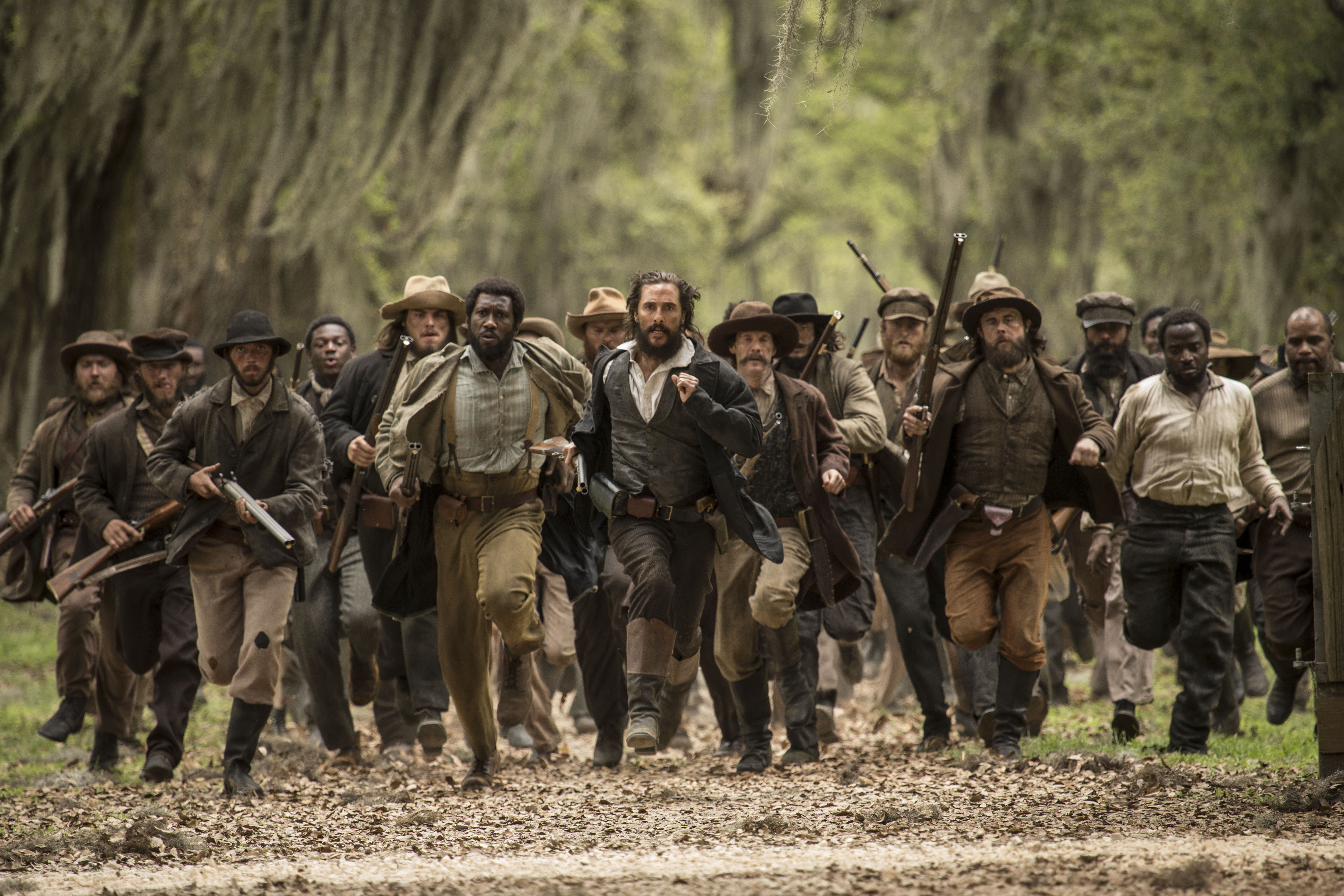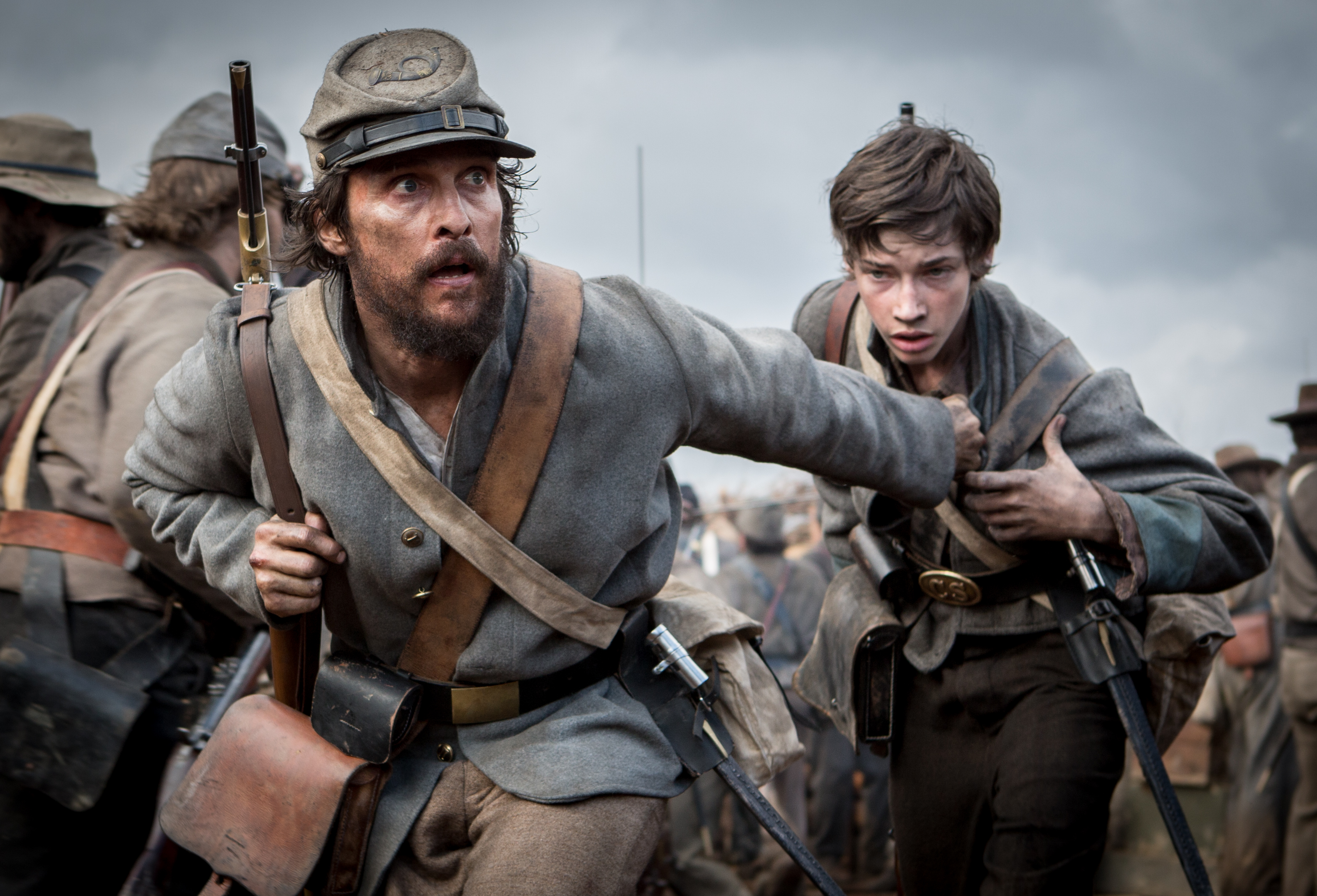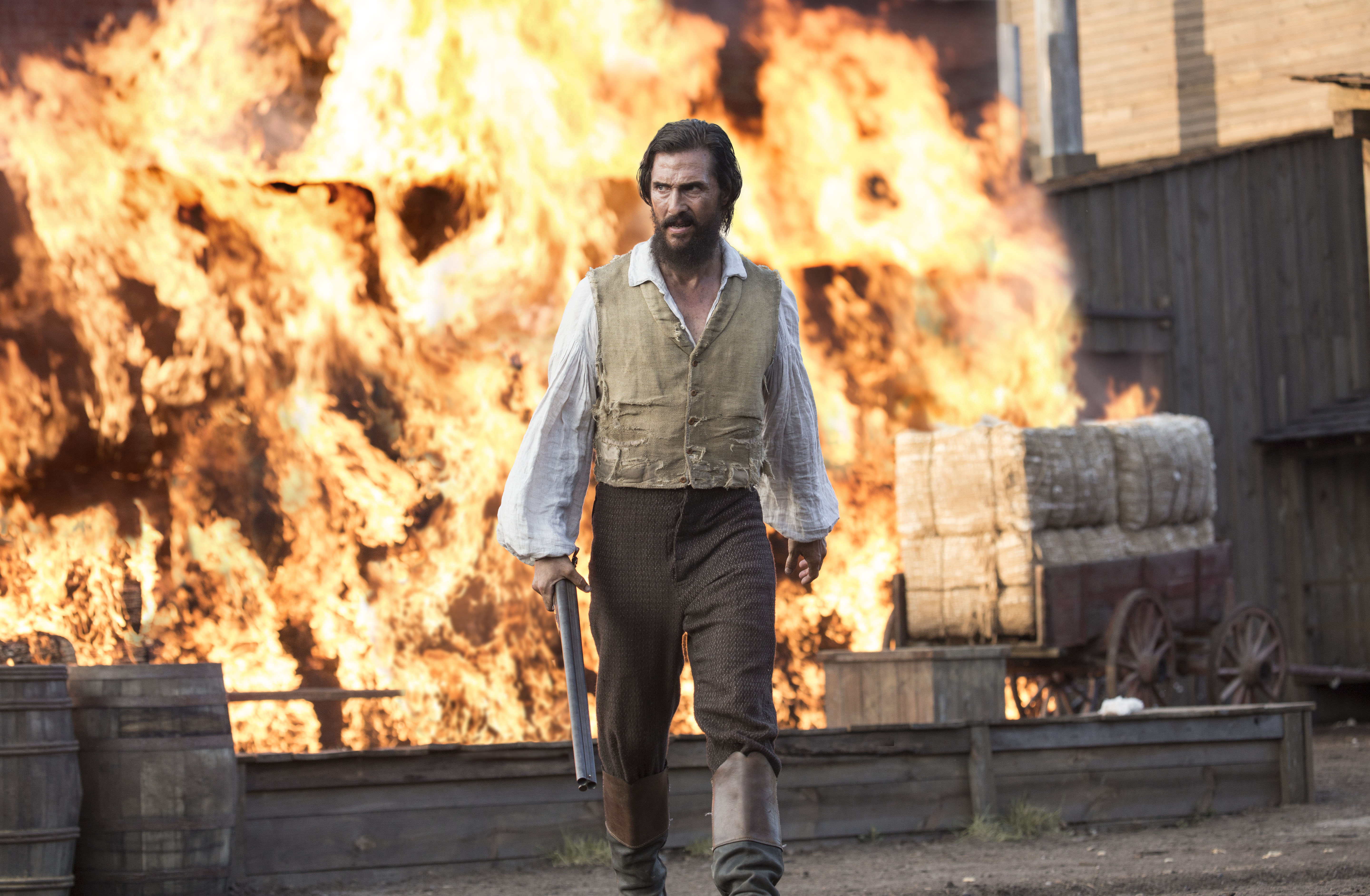#Review Free State of Jones
1862, a country stands divided as men in blue and grey form ranks to become cannon fodder. The American civil war is in full swing as battles rage over hills and across fields with, among other things, the future of slavery hanging in the balance. To the victor go the legislature. It’s easy to look back at this period of American history through, no pun intended, black-and-white lenses. A clear cut example of good versus evil. The union, saints seeking to endow equality, against the confederates, bigoted separatists fighting for their right to continue to own and use black people like cattle. Although, in reality not every southerner was a mustache-twirling plantation owner with more slaves than he could count. For the rich to exist there must be the poor. After all, it wasn’t cotton kingpins that filled up the confederate barracks. No, they were populated with common men drafted into service, taken away from their families, and told to fight for their newly appointed country, and it is these men that are the focus of Free State of Jones.
Admittedly, prior to watching this film I did tend to look back on the period through the aforementioned perspective. Not being from the US, a lot of my knowledge of the civil war has been based on period piece films rather than high school lectures. What initially intrigued me about Free State of Jones was its fresh viewpoint of the confederate south. The soldiers on display here (at least the ones dying on the battlefield) are not evil men. They are simply unfortunate individuals caught up in an evil men’s war.

Newton Knight, played by Matthew McConaughey, is one such individual. As a battlefield nurse, every day he sees firsthand the effects of war on those with no real stake in its outcome. He laments the rich for both starting the war and sending off men like him to fight and die all while sitting safely in their plantation estates. For every 20 slaves, a man owns he can exempt one member of his family from military duty. The last straw is broken for Newton when he watches a 16-year-old boy, whom he knew prior to the war, get gunned down in the trenches. He decides to leave, knowing that repercussions will likely follow, and return to his country home. However, once back in the titular Jones county Newton finds that he has yet to escape the horrors of the war. He learns that the military in the name of the cause has been enforcing strict taxation upon the county residents, basically the wives and children of the drafted men, leaving families with not enough food or provisions to survive. Outraged, Newton makes a stand and at gunpoint drives off a band of tax collecting soldiers (these ones representing the deplorable individuals of the Confederacy) from a neighboring farm. For this he is labeled a criminal and forced to go into hiding taking refuge with a troop of runaway slaves in the Mississippi swamps. Here he forms a militia, which grows as other deserters join his ranks, and begins to wage guerilla-style warfare against the confederates.

Free State of Jones is split into two quite different halves, with the first taking place during the war and the second after it. The former section of the film plays much like Roland Emmerich’s The Patriot (2000) as a period piece set during one of America’s past wars and depicting the exploits of a ragtag militia struggling against a larger military force. Free State of Jones also succeeds in many of the same ways that The Patriot did. We become invested in an underdog story as we are won over by the men in Newton’s militia who have all faced hardship and chosen to take a stand against an enemy given free reign to do as they wish, in this case, the top brass of the confederate army rather than the English in The Patriot. We also take joy in the small triumphs against the much larger foe, such as when the militia steals food back that has been claimed as taxes or when they harvest a cornfield before the army can claim the produce.

The first section of the film works effectively, for the most part, as a wartime drama while exploring the themes of economic class struggle and racism. However, the wheels begin to fall off during the second, which takes place after the confederate surrender. Despite the civil war backdrop, until the midpoint the film deals mostly with class struggles between the rich and the poor. Though once the end of the war is declared, mostly all of these characters’ conflicts are seemingly resolved and they disappear from screen returning to their pre-war lives. The film then shifts focus to the blacks, now trying to survive on their own newly appointed lands but still facing considerable amounts of racial injustice. The problem is not that these themes aren’t worth exploring it’s just that the film feels like it’s made up of two sides of two different coins. All the momentum that has been building up is immediately dissipated and even worse McConaughey’s Newton seems quite often to disappear from the film completely taking a back seat to Moses (Mahershala Ali) one of the escaped slaves from Newton’s militia.
Admittedly, I did have a bit of a hard time sitting through Free State of Jones’ two hour and 19 minute runtime. Perhaps the film had too much to say and, as such, would never have been able to achieve a satisfying structure. However, upon retrospect I find myself appreciating the film more and more with many aspects appealing to me the more that I go over them. These revelations are probably not enough to have me running to the theater for a second look, however, if in a year or two from now I stumble across the film on cable or Netflix I just might sit down for another go-round.
Elevations Pictures releases Free State of Jones on Friday, June 24, 2016


